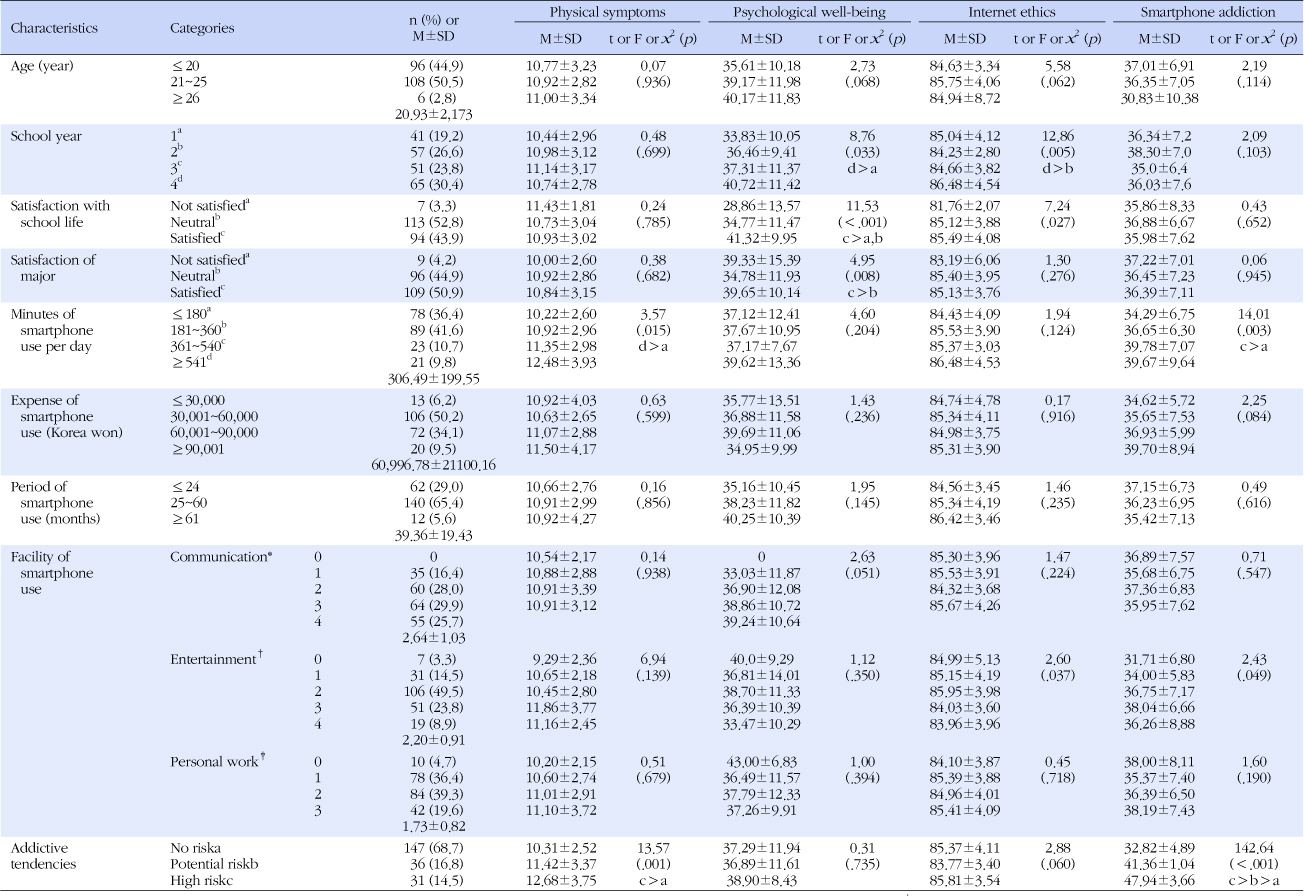1Graduate School, Ewha Womans University, Korea.
2Division of Nursing Science, College of Health Sciences, Ewha Womans University, Korea.
Copyright © 2015 Korean Academy of Nursing Administration
This is an open access article distributed under the terms of the Creative Commons Attribution Non-Commercial License (http://creativecommons.org/licenses/by-nc/3.0/), which permits unrestricted non-commercial use, distribution, and reproduction in any medium, provided the original work is properly cited.
The work was supported by the 2014 research grant fund in Korean Academy of Nursing Administration.

*Items of communication: SNS, E-mail, Phone call, Text message. The numbers (0, 1, 2, 3, 4,) indicate the number of the choice of items in the category; †Items of entertainment: Listening to musics, Watching movies or TV programs, Game, Taking pictures; ‡Items of personal work: Searching web, Internet shopping, Internet banking.

*Items of communication: SNS, E-mail, Phone call, Text message. The numbers (0, 1, 2, 3, 4,) indicate the number of the choice of items in the category; †Items of entertainment: Listening to musics, Watching movies or TV programs, Game, Taking pictures; ‡Items of personal work: Searching web, Internet shopping, Internet banking.
*Duplicate answer.
*Items of communication: SNS, E-mail, Phone call, Text message. The numbers (0, 1, 2, 3, 4,) indicate the number of the choice of items in the category; †Items of entertainment: Listening to musics, Watching movies or TV programs, Game, Taking pictures; ‡Items of personal work: Searching web, Internet shopping, Internet banking.
*Duplicate answer.